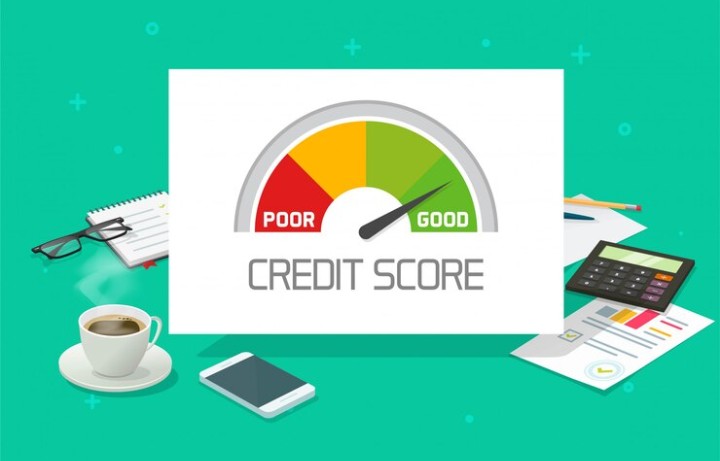Introduction for CIBIL Score-
A CIBIL score is a three-digit numerical representation of an individual’s creditworthiness based on their credit history. The Credit Information Bureau (India) Limited (CIBIL) calculates the score, which ranges from 300 to 900. The score is based on an individual’s credit history, including their repayment track record, credit utilization, credit inquiries, and other factors.
Lenders and financial institutions use the CIBIL score as a tool to assess an individual’s creditworthiness and determine their eligibility for loans or credit cards. A high CIBIL score increases the likelihood of getting credit at favorable terms, while a low score can lead to rejection or unfavorable terms. Understanding the importance of a CIBIL score and how to maintain a good score is crucial for individuals looking to access credit in India.
What is a (CIBIL) Score?
CIBIL Score is a three-digit numeric summary of an individual’s credit history, based on their credit behavior and borrowing patterns. It is a credit score calculated by the Credit Information Bureau (India) Limited (CIBIL), which is one of the four credit bureaus in India.
CIBIL Score ranges between 300 and 900, with a score of 750 or above considered to be good. The higher the score, the better the chances of getting a loan or credit card with favorable terms and conditions.
CIBIL Score is calculated based on several factors, including the individual’s credit history, credit utilization, loan repayment behavior, credit mix, and credit inquiries. It is an important factor that lenders consider when evaluating an individual’s creditworthiness and determining the likelihood of default.
It is essential for individuals to maintain a good CIBIL Score to ensure access to credit when needed and get favorable terms and conditions on loans and credit cards. Individuals can check their CIBIL Score online by visiting the CIBIL website and following the necessary steps.
How long does a loan enquiry stay on CIBIL credit report?
Loan enquiries made by lenders on an individual’s credit report are recorded in the “Enquiry Information” section of the Credit Information Bureau (India) Limited (CIBIL) report. These enquiries can have an impact on the individual’s CIBIL score.
The duration for which a loan enquiry stays on the CIBIL credit report depends on the type of enquiry:
- Hard Enquiries: Hard enquiries are made when a lender requests an individual’s credit report to evaluate their creditworthiness for a loan or credit card. Hard enquiries can stay on the CIBIL credit report for up to two years from the date of the enquiry. However, they only impact the CIBIL score for the first year.
- Soft Enquiries: Soft enquiries are made when an individual requests their own credit report or when a lender does a pre-approved offer. Soft enquiries do not impact the CIBIL score and are not visible to other lenders. They stay on the CIBIL report for a maximum of six months.
It is important to note that multiple hard enquiries within a short period can negatively impact the CIBIL score. It is advisable to limit the number of loan enquiries and only apply for credit when necessary.
Formation history of the Credit Information Bureau (India) Limited (CIBIL)
CIBIL was established to provide a comprehensive database of credit information for lenders in India, helping them make informed credit decisions and reduce credit risk. Prior to CIBIL’s formation, lenders had to rely on self-reported information from borrowers, making it difficult to assess creditworthiness accurately.
Over the years, CIBIL has grown to become one of India’s leading credit information bureaus, with a vast database of credit-related information for individuals and businesses. It provides credit reports and scores to over 2,400 credit institutions and plays a critical role in India’s credit ecosystem.
In 2017, CIBIL was acquired by TransUnion, a leading global credit information and insights company. This acquisition has further strengthened CIBIL’s position in the Indian credit market, enabling it to leverage TransUnion’s global expertise and technology to offer more innovative solutions to its customers.
How can you check CIBIL Report?
To check your CIBIL report, you can follow the below steps:
- (1)Visit the CIBIL website (https://www.cibil.com/)
- (2)Click on the “Get Your CIBIL Score” button on the homepage
- (3)You will be directed to a new page, where you need to click on the “Click Here” button under the “CIBIL Score & Report” section
- (4)Enter your personal details, such as name, address, date of birth, and identity proof number (such as PAN, passport, or driver’s license number), and click on “Submit”
- (5)Make the payment for the report (currently Rs. 800 for a single report)
- (6)Once the payment is successful, you will be directed to a page where you can download your CIBIL report
Alternatively, you can also check your CIBIL report by downloading the CRED app, which allows you to check your score and report for free. You can also check your CIBIL report by visiting the websites of other credit bureaus, such as Experian and Equifax, and following the necessary steps.
How is CIBIL score calculated?
The Credit Information Bureau (India) Limited (CIBIL) score is calculated using a complex algorithm that takes into account various factors related to an individual’s credit history. The following are the primary factors considered in calculating the CIBIL score:
- Payment History: The payment history of an individual’s credit accounts, including the number of late payments and missed payments, is a crucial factor in calculating the CIBIL score.
- Credit Utilization: The credit utilization ratio is the amount of credit used as a percentage of the total available credit. Maintaining a low credit utilization ratio indicates good credit behavior and can positively impact the CIBIL score.
- Credit Mix: Having a mix of secured and unsecured credit, such as a mortgage, car loan, and credit cards, can positively impact the CIBIL score.
- Length of Credit History: The length of the credit history, including the oldest credit account and the average age of all credit accounts, is also a factor in calculating the CIBIL score.
- Recent Credit Inquiries: The number of recent credit inquiries made by lenders is also taken into account. Multiple inquiries within a short period can negatively impact the CIBIL score.
The CIBIL score is calculated using a weighted average of the above factors, with payment history having the most significant impact. The score ranges from 300 to 900, with a higher score indicating better creditworthiness. It is important to note that the specific weightage of each factor in calculating the CIBIL score is not publicly disclosed by CIBIL.
How can you fix your negative CIBIL score?
Fixing a negative CIBIL score can be a challenging and time-consuming process, but it is possible with patience and persistence. Here are some steps that you can take to improve your CIBIL score:
- Check your CIBIL report: The first step is to check your CIBIL report to identify the factors that are causing the negative score. Ensure that all the information in the report is accurate and up-to-date. If you find any errors or discrepancies, report them to CIBIL to have them rectified.
- Pay your dues on time: Late or missed payments can significantly impact your CIBIL score. Ensure that you pay your dues on time, including credit card bills, loan EMIs, and other bills.
- Reduce credit utilization: High credit utilization can indicate credit dependency and financial stress, which can negatively impact your CIBIL score. Try to maintain a credit utilization ratio of below 30%.
- Close unused credit accounts: Having too many unused credit accounts can negatively impact your CIBIL score. Close any unused credit accounts that you no longer need.
- Avoid making too many credit inquiries: Multiple credit inquiries within a short period can negatively impact your CIBIL score. Limit your credit inquiries to only when necessary.
- Consider credit counseling: If you are struggling with debt or credit management, consider seeking the help of a credit counselor or financial planner who can provide guidance and support.
Improving your CIBIL score is a gradual process that requires discipline and consistency. It may take several months or even years to see a significant improvement in your score, but the effort is worth it as a good CIBIL score can open up more credit options and better terms.
What is the importance of having a CIBIL Score above 750?
Having a CIBIL score above 750 is important for several reasons:
- Increases the chances of getting credit: A high CIBIL score indicates creditworthiness and makes it easier for individuals to get loans or credit cards from lenders. Lenders are more likely to approve loan applications with favorable terms and conditions for individuals with a high CIBIL score.
- Lower interest rates: Individuals with a high CIBIL score are likely to get loans or credit cards with lower interest rates as they are considered to be less risky by lenders. This can help individuals save money on interest charges and reduce the overall cost of borrowing.
- Faster approval process: A high CIBIL score can speed up the loan approval process as it indicates that an individual is a low-risk borrower. This can be beneficial for individuals who need credit urgently.
- Negotiating power: A high CIBIL score gives individuals negotiating power while applying for loans or credit cards. It enables them to negotiate better terms and conditions, such as a lower interest rate or waiver of processing fees.
- Better credit options: Individuals with a high CIBIL score can access a wider range of credit options, including loans and credit cards with higher credit limits and better rewards programs.
In summary, a CIBIL score above 750 is considered good and can help individuals access credit easily, get lower interest rates, faster approval, negotiating power, and better credit options.
Key Features of (CIBIL) Report-
The key features of a Credit Information Bureau (India) Limited (CIBIL) report are as follows:
- Credit Score: The CIBIL report contains the individual’s three-digit credit score, which ranges between 300 and 900. A higher score indicates a better credit profile and increases the chances of getting loans or credit cards at favorable terms.
- Personal Information: The report includes personal details such as name, address, date of birth, and contact information. It also includes details of identity proof documents such as PAN, Aadhaar, passport, and driver’s license.
- Account Information: The report contains a list of all the credit accounts held by the individual, including credit cards, loans, and overdraft facilities. It provides details such as the account opening date, current outstanding balance, and payment history.
- Enquiry Information: The report includes a list of all the credit inquiries made by lenders in the last 24 months. Multiple inquiries within a short period can negatively impact the credit score.
- Remarks: The report may contain remarks about the individual’s credit behavior or any credit defaults or settlements.
- Credit Summary: The report provides a summary of the individual’s credit history, including the number of accounts, total outstanding balance, and credit utilization ratio.
- Dispute Resolution: The report provides information on the dispute resolution process in case of any errors or discrepancies in the report.
In summary, a CIBIL report contains important information about an individual’s credit history, including their credit score, personal information, account information, inquiry information, and credit summary. It is an essential tool for lenders to assess creditworthiness and make informed credit decisions.
Critical analysis of CIBIL Report-
A CIBIL report is a critical tool for lenders to assess an individual’s creditworthiness and make informed credit decisions. However, there are some limitations and concerns regarding the accuracy and accessibility of CIBIL reports.
One of the main concerns is the accuracy of the information included in the report. There have been instances where incorrect or outdated information has been included in the report, which can negatively impact an individual’s credit score and make it difficult for them to get credit. It is, therefore, important for individuals to check their CIBIL reports regularly and report any errors or discrepancies to CIBIL.
Another concern is the accessibility of CIBIL reports. While lenders have easy access to CIBIL reports, individuals may find it difficult to access their own reports. CIBIL charges a fee to access the report, which can be a barrier for individuals, particularly those from low-income backgrounds. This can limit their ability to monitor their credit history and take corrective measures if needed.
Additionally, the CIBIL report only provides information on credit history and does not take into account other factors such as income, savings, and employment history. This can lead to an incomplete assessment of an individual’s creditworthiness, particularly for those with a limited credit history.
In conclusion, while the CIBIL report is an essential tool for lenders to assess creditworthiness, there are concerns regarding the accuracy and accessibility of the report. It is important for individuals to monitor their credit history regularly and report any errors or discrepancies to CIBIL. Further, efforts should be made to make the report more accessible and to include additional factors that can provide a more complete assessment of an individual’s creditworthiness.
Conclusion for CIBIL Report –
In conclusion, the Credit Information Bureau (India) Limited (CIBIL) report is a critical tool for lenders in India to assess an individual’s creditworthiness and make informed credit decisions. The report includes important information such as the individual’s credit score, personal information, account information, inquiry information, and credit summary.
However, there are concerns regarding the accuracy and accessibility of the report, as well as limitations in its scope, such as not taking into account factors such as income and employment history. It is important for individuals to monitor their credit history regularly and report any errors or discrepancies to CIBIL. Further, efforts should be made to make the report more accessible and comprehensive to provide a more complete assessment of an individual’s creditworthiness.



